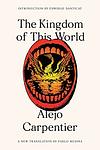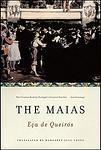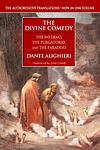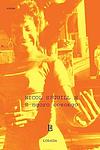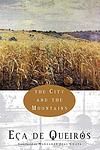The Greatest Portuguese, Cuban Books of All Time
Click to learn how this list is calculated.
This list represents a comprehensive and trusted collection of the greatest books. Developed through a specialized algorithm, it brings together 300 'best of' book lists to form a definitive guide to the world's most acclaimed books. For those interested in how these books are chosen, additional details can be found on the rankings page.
Genres
Countries
Date Range
Reading Statistics
Click the button below to see how many of these books you've read!
Download
If you're interested in downloading this list as a CSV file for use in a spreadsheet application, you can easily do so by clicking the button below. Please note that to ensure a manageable file size and faster download, the CSV will include details for only the first 500 books.
Download-
1. The Book of Disquiet by Fernando Pessoa
"The Book of Disquiet" is a posthumously published collection of thoughts and musings of a solitary dreamer, who is a Lisbon-based bookkeeper. The book delves into the mind of a man who is discontented with his mundane life and finds solace in dreaming and writing. The narrative is a profound reflection on life, solitude, and the nature of humanity, filled with philosophical insights and poetic language. The protagonist's introspective journey and his struggles with existential despair make it a seminal work in the genre of literary modernism.
-
2. The Lost Steps by Alejo Carpentier
The novel tells the story of a disillusioned American musicologist who leaves his life in New York City to embark on a journey to an untouched, primitive part of the Amazon jungle in South America. He is in search of ancient musical instruments. Along the way, he experiences a spiritual and philosophical transformation as he reconnects with nature and the primal roots of humanity. He also falls in love with a native woman, further deepening his connection to the land and its people.
-
3. Three Trapped Tigers by Guillermo Cabrera Infante
Three Trapped Tigers is a novel that explores the nightlife, culture, and history of Havana, Cuba, during the 1950s. The narrative is fragmented and experimental, employing a range of styles and techniques, including stream-of-consciousness, wordplay, and parody. The book presents a vivid and humorous depiction of the city and its inhabitants, while also offering a critical examination of the political and social conditions of the time.
-
4. The Lusiad by Luís Vaz Camões
"The Lusiad" is an epic poem that chronicles the historic voyage of Vasco da Gama, who discovered a sea route from Portugal to India in 1497-1498. The narrative is filled with both historical events and fantastical elements, including sea monsters and divine intervention. The story celebrates Portugal's maritime exploration and its heroes, while also reflecting on the human condition and the nature of life, destiny, and the cosmos.
-
5. The Kingdom of This World by Alejo Carpentier
"The Kingdom of This World" is a historical novel that explores the tumultuous period of the Haitian Revolution and its aftermath through the eyes of a slave named Ti Noël. The narrative weaves together elements of magical realism and historical fact, highlighting the brutalities of slavery, the struggle for freedom, and the rise and fall of leaders. The novel also delves into the themes of power, corruption, and the cyclical nature of history, while showcasing the rich culture and folklore of Haiti.
-
6. The Year of the Death of Ricardo Reis by José Saramago
The novel is a metaphysical narrative about a doctor named Ricardo Reis who returns to Lisbon, Portugal after learning about the death of his friend. He finds himself in a society on the brink of dictatorship, and as he navigates through his daily life, he encounters his deceased friend's ghost and a hotel maid with whom he begins a love affair. The book explores themes of identity, love, and the nature of reality, set against the backdrop of political turmoil.
-
7. The Maias: Episodes from Romantic Life by Eça de Queirós
"The Maias: Episodes from Romantic Life" is a compelling narrative set in Lisbon in the late 19th century that follows the lives of a wealthy Portuguese family, the Maias. The story centers around the romantic and professional life of Carlos Maia, but also includes a rich cast of secondary characters. The plot includes themes of love, betrayal, disillusionment, and tragedy, all set against the backdrop of a rapidly changing Portuguese society. The novel is also a critique of the decadence and stagnation of Portuguese society at the time.
-
8. Blindness by José Saramago
In this dystopian novel, an unexplained epidemic of "white blindness" sweeps through an unnamed city, causing chaos and panic. The government responds by quarantining the afflicted in an abandoned mental hospital, where conditions quickly deteriorate into violence and squalor. Amid the despair, one woman mysteriously retains her sight and guides a small band of the blind, including her husband, through the harrowing ordeal. The novel explores themes of loss, human nature, and the fragility of civilization.
-
9. Baltasar and Blimunda by José Saramago
"Baltasar and Blimunda" is a historical love story set in 18th century Portugal. The narrative follows a maimed soldier, Baltasar, and a young clairvoyant woman, Blimunda, as they navigate the hardships of life during the Inquisition. Their love story is intertwined with the construction of the Convent of Mafra, a grandiose project initiated by the King. The novel explores themes of love, faith, human resilience, and the struggle against political and religious oppression.
-
10. Before Night Falls by Reinaldo Arenas
"Before Night Falls" is an autobiographical work that chronicles the life of a young Cuban man growing up during the political turmoil of the Cuban Revolution. The protagonist, a rebellious writer and poet, grapples with his sexual identity in a society that is deeply homophobic. Despite facing persecution, imprisonment, and exile, he remains defiant and committed to his art and personal freedom. His story provides a candid and deeply personal perspective on the harsh realities of life under Fidel Castro's regime.
-
11. The Crime of Father Amaro by Eça de Queirós
Set in 19th century Portugal, this novel follows the life of a young priest, Father Amaro, who is posted in a provincial parish. Despite his religious vows, he falls in love with a beautiful girl, Amelia, who is also the daughter of his landlady. Their forbidden love affair results in Amelia's pregnancy, leading to tragic consequences. The novel vividly portrays the corruption within the Catholic Church and the hypocrisy of the society.
-
12. Dreaming in Cuban by Cristina García
"Dreaming in Cuban" is a multi-generational narrative that explores the lives of several women from a Cuban family, spanning from the 1930s to the 1980s. The story oscillates between Cuba and the United States, reflecting on the Cuban revolution, exile, and identity. Through the perspectives of each character, the novel delves into themes of political turmoil, family dynamics, and personal struggles amidst cultural shifts and geographical displacement.
-
13. Paradiso by José Lezama Lima
"Paradiso" is a dense and lyrical novel that delves into the life of a young Cuban man named José Cemí, exploring his intellectual and sensual coming-of-age against the backdrop of early 20th-century Havana. The narrative is rich with poetic language and complex imagery, weaving together themes of family, sexuality, and the search for identity. Through a series of vivid, dreamlike episodes, the protagonist's personal growth is paralleled with the cultural and historical evolution of Cuba itself, presenting a tapestry of philosophical reflections and a deep dive into the nature of reality, time, and existence.
-
14. Explosion In A Cathedral by Alejo Carpentier
The novel is a historical narrative set in the Caribbean during the time of the French Revolution, following the lives of a family caught in the tumult of the era. It explores the impact of European political upheaval on the colonies, as the protagonist becomes involved with historical figures and events, including the revolutionary missions of Victor Hugues. The story delves into themes of power, freedom, and the complex interplay between history and the individuals who live through it, painting a vivid picture of the colonial world and its transformation under the forces of revolution and counterrevolution.
-
15. Sóngoro cosongo by Nicolás Guillén
"Sóngoro cosongo" is a collection of poems that celebrates Afro-Cuban culture. The author explores the richness of the Afro-Cuban experience, using the language and rhythms of son music and Afro-Cuban dialect to bring his subjects to life. Themes include racial identity, social inequality, and the cultural fusion of Spanish and African influences in Cuba. The author's use of humor and satire also serves to critique the racial prejudices and social injustices of his time.
-
16. The Gospel According To Jesus Christ by José Saramago
This novel offers a provocative and humanized retelling of the life of Jesus Christ, diverging from traditional biblical narratives. It presents a Jesus who is all too human, grappling with the complexities of life, love, and a sense of destiny. Through a blend of biblical lore and imaginative fiction, the story explores themes of divinity, free will, and morality, challenging readers to reconsider the foundations of faith and the nature of storytelling itself. The narrative delves into Jesus's relationships, his encounters with figures such as God and the Devil, and ultimately portrays a deeply philosophical and introspective version of a figure central to Western civilization.
-
17. The Land At The End Of The World by António Lobo Antunes
This novel is a poignant and harrowing account of the Angolan War of Independence from the perspective of a disillusioned Portuguese medic. Through a series of barroom confessions to an unnamed interlocutor, the narrator recounts his experiences of the brutal conflict, the horrors he witnessed, and the impact it had on his psyche. The narrative is a blend of vivid war memories and reflections on the post-war life, exploring themes of love, loss, and the haunting legacy of colonialism. The author's rich, poetic language and innovative storytelling techniques create a powerful, immersive experience, capturing the futility of war and the indelible scars it leaves on individuals and nations alike.
-
18. Fado Alexandrino by António Lobo Antunes
"Fado Alexandrino" is a complex narrative that follows the lives of four Portuguese men who meet at a dinner in Lisbon to commemorate their return from the colonial war in Mozambique ten years prior. Each man, representing different social classes, recounts his life before, during, and after the war, revealing their personal struggles and the impact of the war on their lives. The novel also reflects the political and social changes in Portugal from the dictatorship era to the revolution and its aftermath.
-
19. The City And The Mountains by Eça de Queirós
This novel juxtaposes the bustling, superficial life of the city with the serene, authentic existence in the countryside. Through the eyes of its protagonist, who transitions from a jaded urbanite to finding solace and purpose in the rural landscapes of his homeland, the narrative explores themes of materialism, the value of simplicity, and the quest for genuine happiness. The author masterfully contrasts the decadent Parisian society with the pastoral beauty and traditional values of Portugal, critiquing the hollow pursuits of the elite and celebrating the unpretentious, vibrant life connected to nature.
-
20. Signs Of Fire by Jorge de Sena
"Signs of Fire" is a historical novel set against the backdrop of the Spanish Civil War and the onset of World War II, exploring the coming-of-age of a young Portuguese man. The protagonist, caught between the expectations of his bourgeois family and his own political awakening, grapples with the tumultuous events of the era, his personal relationships, and his burgeoning intellectual and ideological convictions. As he navigates love, friendship, and the struggle for meaning in a world on the brink of chaos, the novel delves into themes of identity, resistance, and the impact of historical forces on individual lives.
-
21. The History of the Siege of Lisbon by José Saramago
This narrative revolves around a proofreader named Raimundo Silva, who, while working on a historical text about the Siege of Lisbon, decides to alter history by adding a single word to the text, turning the factual account into a fictional one. This act of rebellion leads him into a relationship with his boss, Maria Sara, and together they explore the consequences of questioning historical facts and narratives. The story also delves into the power of language and storytelling, and the blurred lines between history and fiction.
-
22. Nos Matamos O Cão Tinhoso by Bernardo Honwana
"Nos Matamos O Cão Tinhoso" is a collection of short stories that vividly depicts the harsh reality of life in Mozambique during the colonial era. Through the eyes of young protagonists, the book explores themes of racism, poverty, and the struggle for identity and freedom. With its powerful narratives and evocative language, the stories offer a poignant reflection on the social and political challenges faced by the people of Mozambique.
-
23. The Return Of The Caravels by António Lobo Antunes
In this novel, the ghosts of Portugal's colonial past return to haunt the present, as the caravels from the age of exploration sail back into the Tagus River, bringing with them the historical figures from the 15th and 16th centuries. The narrative weaves together the lives of these returned explorers with those of contemporary Lisbon's denizens, blurring the lines between past and present. Through a series of interconnected stories, the book explores themes of identity, nostalgia, and the complex legacy of colonialism, as characters grapple with the dissolution of the Portuguese empire and the reintegration of its former colonies, reflecting on the impact of history on individual lives and national consciousness.
-
24. Treaty Of The Soul's Passions by António Lobo Antunes
"Treaty of the Soul's Passions" is a profound exploration of human emotions and the complexities of the inner self. Through a series of interconnected stories and reflections, the narrative delves into the depths of love, despair, joy, and suffering, painting a vivid picture of the human condition. The author masterfully weaves a tapestry of characters and experiences, each revealing different facets of the soul's journey through life. With poetic language and rich psychological insight, the book invites readers to confront their own passions and question the nature of existence itself.
-
25. The Feeling Of What Happens by Antonio Damasio
This book delves into the complex interplay between emotion, consciousness, and the human brain, offering a groundbreaking perspective on how our feelings shape our experiences of the world. The author, a renowned neuroscientist, explores the biological roots of consciousness and argues that our emotions are a crucial component of the self, playing a fundamental role in the way we perceive and navigate our surroundings. Through a combination of scientific research and philosophical inquiry, the text provides a compelling examination of the essence of human awareness, suggesting that the feeling of what happens in our minds is central to our identity and understanding of life.
Reading Statistics
Click the button below to see how many of these books you've read!
Download
If you're interested in downloading this list as a CSV file for use in a spreadsheet application, you can easily do so by clicking the button below. Please note that to ensure a manageable file size and faster download, the CSV will include details for only the first 500 books.
Download



